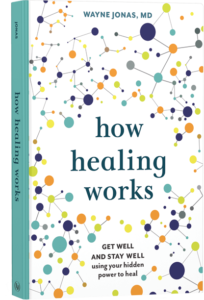As a caregiver, you spend most of your time thinking of and acting for others. This makes it hard to shift the focus back onto you. It can even feel selfish. Yet self-care is critical to surviving and even more so to thriving. Each time you fly on an airplane, you are told to put on your own oxygen mask before you help others with theirs. When you are your best self, you can share that with your family.
Finding Balance During a Crisis
In the first phases of caregiving, you may always feel rushed. Family caregiversof severely wounded, ill or injured loved ones may even feel guilty about leaving the room or taking 30 minutes to run to the grocery store.
In the face of a crisis, it’s important to give yourself permission to walk out of the hospital or rehab center for 15 minutes to get some air, go home and take a shower, have an uninterrupted meal without rushing back to the hospital. This type of in-the-moment self-care will keep you healthy and ready for the long haul.
Later, as some of the grief and loss sets in, balance is equally important to keep feelings of depression from taking root. Caregivers often feel stuck in “crisis mode”—dealing with one thing after another, always waiting to see what comes next. Breaking the cycle of constant urgency can allow for new routines.
Balancing your work and responsibilities with some “you time” is important. Hobbies can help. Find activities that are fun and rewarding so that you want to do them regularly. They can be anything from walking with friends and playing with your kids to taking your dog for a walk, playing a team sport or going on picnics. Try joining a club or faith-based organization, volunteering in your community or learning a new skill or craft. Living a balanced life can help prevent feelings of burnout.
Focus on love and forgiveness—and start with yourself. If you are not loving and forgiving of yourself, it’s hard to inspire, motivate and encourage others.
Meditation techniques such as loving-kindness meditation can help address anger and emotional pain. It is a practice that is used to address feelings such as shame, guilt, fear, chronic pain, a lack of sense of support and difficulties with other people.
Manage Your Time With Yourself In Mind
The first piece of advice to finishing your to-do list may be surprising. Take a nap, meditate, go for a walk. Taking 20 minutes to practice self-care makes you more productive and able to do everything else. When you feel good in mind, body, and spirit, you are a better caregiver.
With this in mind, move your own physical and mental care up on the priority list and get help with or release some of the other items.
Additional tips include:
- Prioritize. Do what’s most important and let the rest go. Don’t feel like you have to do everything at once. Bite off manageable chunks of larger jobs.
- Do what you can and don’t stress about the rest. Find shortcuts that work for you. If you don’t have time to clean the whole kitchen but you feel better with a clear counter, just de-clutter and let that be enough. Repeating “Perfection is overrated,” or “Good enough is great,” may ease your mind.
- Simplify and combine your efforts. Make fewer trips. Group appointments when possible. See if you can do weekly blood draws closer to home. Fill prescriptions when they are ready to prevent running out at the last minute and taking an extra trip.
- Acknowledge that the day will not go as planned and take a breath.Getting upset won’t help you or your care recipient.
Don’t Forget to Breathe
Caregivers live high-stress lives. Seemingly, everyday activities fuel anxiety and fear. A ringing phone can trigger feelings of panic. Checking on your wounded warrior in the morning may begin a string of “what ifs.”
Various breathing techniques and mobile apps can teach you to use the breath to self-calm. The breath triggers changes in the body’s nervous system that help you better manage stress. Deep breathing techniques have been found to help reduce feelings of anxiety and stress in service members with post-traumatic stress and improve performance in emergency personnel.
Put one hand on your chest and another on your stomach. As you inhale and exhale, your stomach should rise and fall. If not, your breathing may be too shallow.
Dealing With Unhealthy Behaviors
Let’s face it, we all do things that we know are not healthy. What is important is that these behaviors don’t become habits. Once they do, they are very hard to break and sometimes require professional help. Groups can help you—your church, community center, doctor and online support groups. The important thing is to develop awareness of your behaviors and seek help. If you are a very private person who is hesitant to share personal issues, taking that first step in seeking help is most difficult. Perhaps having someone you trust to join you will make it easier. Use your healthy relationships to find support to manage unhealthy behaviors before they become a habit. Break bad habits so they do not become addictions. Find healthy habits to fill the void left when ending the bad habits.
Practice A Healthy Lifestyle By Setting Your Self Care Goals
Healthy behaviors can enhance your wellbeing. They prevent and treat disease. Making good food choices, exercising, coping with stress and avoiding unhealthy behaviors are important to lifelong health and wellness. Think about it. What is one healthy behavior that you would like to add to your life?
For more information, read The Caregiver’s Companion: A Caregiver’s Guide to Self Care.
 Take Your Health Into Your Own Hands
Take Your Health Into Your Own Hands
Drawing on 40 years of research and patient care, Dr. Wayne Jonas explains how 80 percent of healing occurs organically and how to activate the healing process.